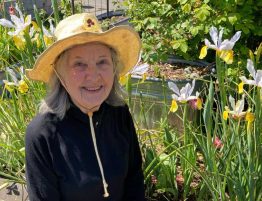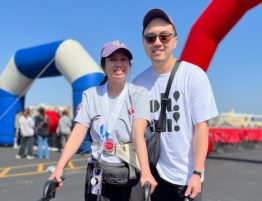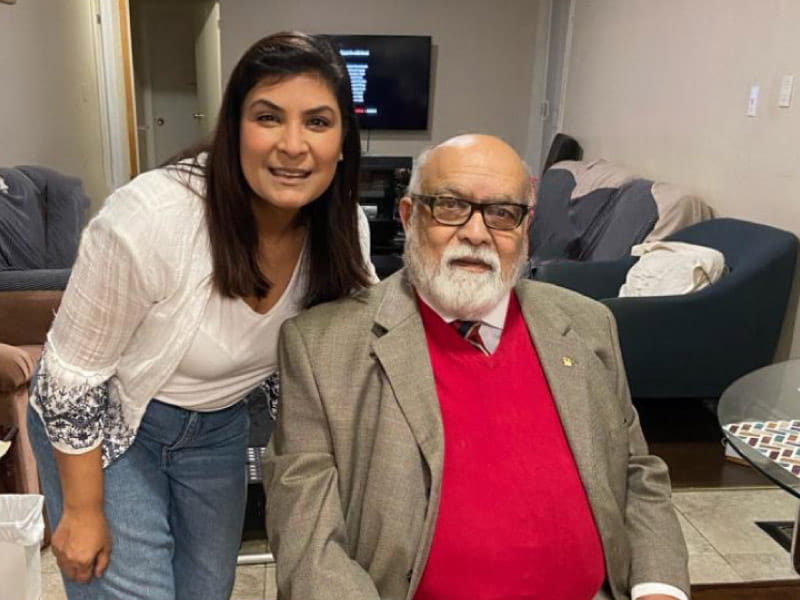
When Beyoncé and Taylor Swift toured Missouri last summer, broadcast reporter Farah Siddiqi used their appearances as an opportunity to teach people about CPR.
She wrote a story explaining how songs like Beyoncé’s “Crazy in Love” and Swift’s “The Man” can help people maintain the 100-120 beats per minute recommended for performing chest compressions when giving CPR. She also noted that when a bystander performs CPR, the person’s chances of survival can double or triple.
Siddiqi was especially interested because her father, Qamar Masood, survived a heart attack 26 years earlier.
Days after Siddiqi’s story came out, Masood’s heart stopped. Siddiqi happened to be there. And she kept a steady rhythm as she performed CPR on her dad.
A Pakistani immigrant, Qamar and his wife, Sadaf, raised Siddiqi and her two siblings in Ottawa, Canada. When Siddiqi was 16, she was supposed to join Qamar for a business trip to a conference in Calgary.
A few days before they were to leave, Siddiqi awoke one morning to see the bright lights of an ambulance and fire truck outside their ranch-style home. She ran downstairs to find her father, who was 41, on the couch surrounded by EMTs.
Because Qamar had bouts of indigestion for years, he knew what he felt that morning was more severe, prompting the call for an ambulance. He turned out to be having a heart attack caused by a full blockage in the heart’s biggest artery.
He started medication to help clear his clogged arteries. Ten years later, he got a pacemaker and defibrillator implanted in his chest. The devices would help his heart beat at a regular rate and deliver a shock to restore his heartbeat, if needed.
After the heart attack, Qamar threw himself into his job – he owned automotive mechanic shops and a restaurant turned catering company – and his volunteer work.
“He felt better when volunteering,” Sadaf said.
He helped Pakistani refugee families settle in Ottawa, worked tirelessly to organize community fundraisers, and volunteered at their local church, mosque and in soup kitchens. On weekends, he led the family on beach cleanups.
“He wanted to make sure that every single thing he did gave him a spot in heaven in the eyes of God,” Siddiqi said. “He really wanted to leave a legacy behind.”
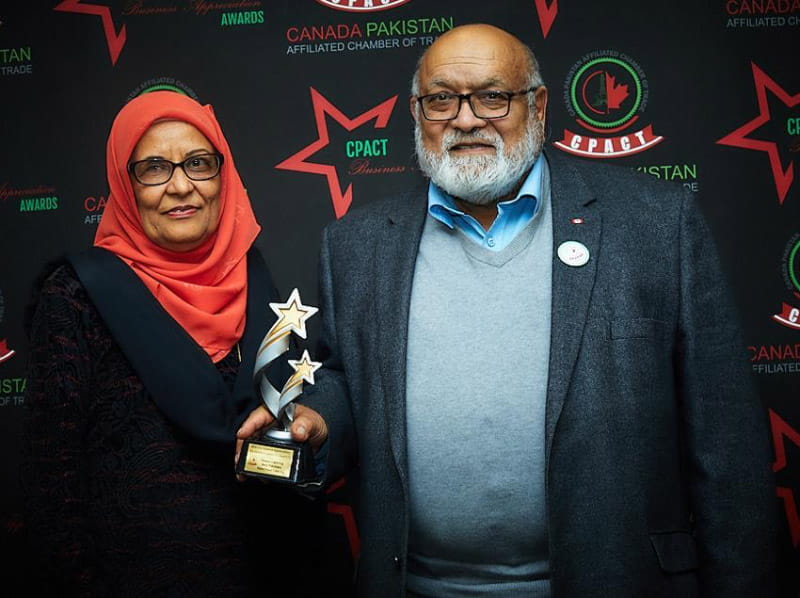
In 2022, Siddiqi was living in Dubai. Qamar’s heart problems had gotten far worse. He was in heart failure. He had so much trouble sleeping he had to sleep sitting up.
He’d never taken part in Hajj or Umrah, the Islamic pilgrimage to Mecca, the holiest city in the world for Muslims. He decided the risk to his health was worth it for the reward to his soul.
It wasn’t easy. Poor air quality made him huff and puff even more than usual.
Still, he did it.
“It was by far a dream for him,” Siddiqi said.
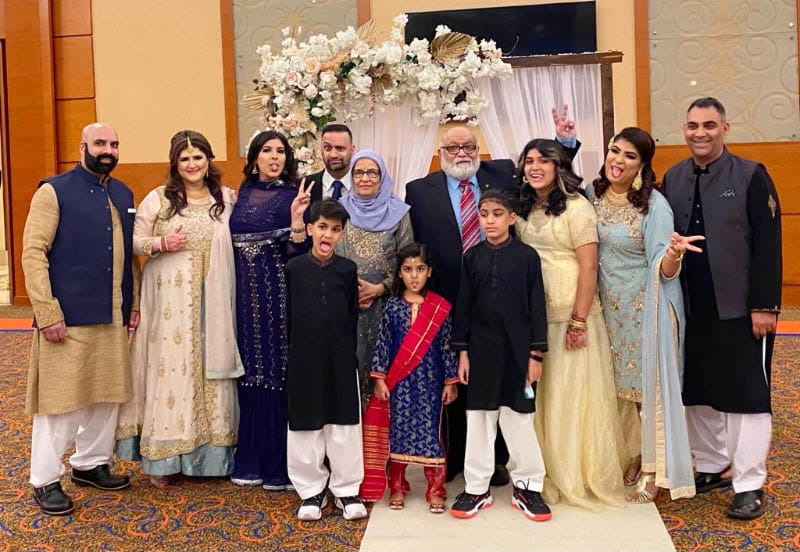
Not long after returning to Canada, Qamar tested positive for COVID-19. Ten days later, he had a speech to deliver at a charity ball he’d been planning for months for a youth community center.
Siddiqi’s cousin went and texted her. “He’s sweating profusely,” she wrote. “He’s out of breath.” But Qamar kept speaking and he got a standing ovation.
Later, Siddiqi called her dad to check in. As they spoke, he felt a strange sensation in his chest. His defibrillator, he thought. He went to the hospital.
In the emergency room, his defibrillator shocked him 32 times. Doctors put him on a ventilator. He was unconscious for nine days. Siddiqi and her mother and siblings didn’t think he’d survive.
But Qamar woke up. He got off the ventilator and was able to go home.
Just shy of a year later, Siddiqi, her husband and her four kids were living in Tennessee. They visited her parents in Canada. They had a busy day running errands and seeing a movie. Qamar stayed home. They brought him leftover popcorn.
The family stayed up until 2 a.m. chatting. An hour after everyone went to sleep, Siddiqi heard a noise and her mom screamed. She ran into her parents’ room. Her father was on the floor, unresponsive.
Her mother and brother, who also was there, started to pray.
Siddiqi jumped into action.
“I knew what to do from the story I’d done,” she said.
She squeezed in between the bed and closet, leaned over him and started CPR.
“Baba!” she yelled. “Baba, come back!”
On the third compression, she felt his breath.
In the ambulance, Qamar was alert and talking.
“We weren’t necessarily expecting him to come home,” Siddiqi said, “but we were thankful we didn’t have to lose him in this traumatic way.”
Two days later, Qamar died peacefully in the hospital. He was surrounded by dozens of family members and connected to 200 more over Zoom. Siddiqi and her siblings had final conversations with their father. He shared life lessons.
“CPR gave us time for goodbyes, proper closure, and a really fantastic and peaceful closure to my dad’s life,” she said. “I felt so confident, and am so grateful for those lifesaving skills. You never know when you might need them. Some may call our story coincidence, but I call it fate.”
Stories From the Heart chronicles the inspiring journeys of heart disease and stroke survivors, caregivers and advocates.


